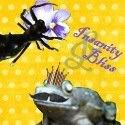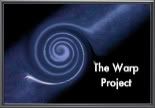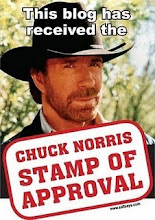The truth is, I'm tired pretty much all of the time. Being a single mom just works out that way for me. I live away from my family, so don't have help from them, and I've taken on a lot of sizable projects for myself.
Determined to be an example for my daughter --that a person can pursue a life that is fulfilling, even under difficult circumstances --I went to graduate school with her in tow, otherwise on my own, when she was five years old. Honestly, I barely survived. But I still believe it was worth it. And now here I am still working on finishing my dissertation. Except, having finished coursework, I'm also teaching at the university level full-time, and helping the ten-year old live her own life that is fulfilling --taking drum lessons, rock climbing, and going to school.
A friend here in Flagstaff asked me if I might have chronic fatigue syndrome. When I scoffed, he tried to convince me by claiming "even Lance Armstrong has it." Then by telling me that Lance Armstrong pays people to get him motivated out of bed in the morning so he'll go ride all day on his cancer-free bike.
The thing that wears me down about being an adult is quite simply that it's entirely up to me to get everything done. I don't have Lance Armstrong's (probably imaginary) team of motivators to push me along. Even when I have less to do, I still feel the pressure of it all being up to me. Recently I was up in Alaska visiting family, and I spent all of one day cleaning my sister's house because she was having a holiday party that night and needed to cook. A family friend came over and commented about things looking extra tidy, and my sister mentioned I'd helped her with cleaning. The friend made some comment about how surely I'd done it to show my sister up, which is odd in itself, admittedly. But him saying that surprised me enough that it made clear to me why cleaning her house had felt great to me that entire day--I didn't have to do it. I was helping her out, making the pressure on her easier, and getting something done without any of the pressure on myself to deal with.
There are times when this pressure I keep mentioning feels like a kind of endless oblivion. Like, I will never get out of it. Like, this is just what it means to be alive. Like, my family life growing up didn't prepare me for it at all. I think though, honestly, it's more that I'm not entirely cut out for this American individuals-doing-it-for-themselves mindset many of us seem to operate in now. I was raised within a massive sense of community and family, and here I am now living very much outside of it. So, in the midst of living what is otherwise probably a fairly normal American life (I suppose--I could be quite wrong about that. Maybe I really do just have too much on my plate.) I feel cut-off, overly-responsible, and tired.
My mother grew up in a town of only a couple hundred people out on the far reaches of Western coast Alaska. Every single person in that town was known by every other. In the summers people caught and dried fish, and picked and froze berries to eat that winter. In the fall they hunted caribou to freeze for the winter too. In spring they gathered bird eggs. Different families there were closer to each other than with others, and those that were connected shared and traded the foods they'd gotten for the year. Growing up, my extended family lived still in this place, and in the summers more extended family, and all of my immediate family, all flew in to spend the summer fishing and berry picking there. We migrated to the Western coast for a quarter of the year. The rest of the year those that lived outside of Anchorage would fly in and stay with us when they needed to come to town for medical visits, grocery shopping, or just a break from the village. In this sort of way, community was integrated within our life in the city too. We shared our subsistence food with people, there were families we traded kid time with, and we almost always had someone staying in the house with us as they moved through town.
Having left Alaska to live about in the rest of the world I've become more aware of how strongly connected that sense of community was for me growing up. It established in me a willingness to risk trying things that otherwise might seem too hard --because I'd been raised to understand there would always be help from somewhere when I needed it. I think it firmly rooted an intense moral drive too --with someone always there to help, there was also always someone that would know what I was doing with my life. It's also served me well at growing a semblance of community with others as I travel around. I tend to get along with people easily, and interact with others as if we're operating in a long term commitment of friendship. But when I'm really honest, it's also made much of the rest of the world seem alien, and lonely. When I entered grad school I was shocked by how on-their-own everyone seemed to me. Compared to what I was used to, people weren't inclined to have work days together, or share that many meals, or plan group events. It seemed crazy --how did they expect to survive the stress of a graduate education when living so alone?
The Flagstaff ethos turns out to include more immediate connections with people. People are almost excessively friendly here, and quite willing to help each other. I think it's the power of a small town that embeds that in people, that makes it seem both more possible and more necessary, and perhaps also more safe.
But having said all of this, what is actually motivating me to talk about all of this? A family friend died just before the new year. I found out early in the morning the day I drove out of Alabama and into Tennessee. Though he was almost 80 years old, he was out hunting along the river in that same area on the Western coast of Alaska. The weather recently had been warmer than usual, and without realizing that the ice had thinned too much, he crossed the river on his ATV. His stepson found the tracks of his four-wheeler and followed them all the way to a hole in the ice where he'd fallen in the river and not come back out again. It's deeply sad, and a sort of horrifying story. It's also a story I'm familiar with. The other thing about having grown up connected to, and with family in such a small and remote place, is that people you're close to die fairly frequently, and often in tragic, unexpected ways. I believe this sort of brutal reality also works to strengthen the bonds of community. When life is unexpected both in its arrival, and its departure, you understand more dearly how we all need each other, how irreplaceable we all are. Our friend that died was well-connected to the community. He was generous with the foods, and resources he'd gathered throughout the year. His wife too is well-loved there. Because she needed help to locate her husband, and the people of the area cared about both her and her husband, the locals spent an entire day looking for his body. His wife paid for the fuel of a helicopter pilot, while he flew low over the river looking through the ice. The people with skiffs drug the river closer to the mouth where there was no ice. And others walked along the edge of the water. His body has been found now, and his wife's sister, and other son have flown out to be with her as she adjusts to living in her house on her own. Without a number of people working in unison, his wife wouldn't have had the support she needed, and his body wouldn't have been found as easily.
One of the odd synchronicities of this whole sad affair is that it occurred on the same day that two other friends of mine were celebrating their love and commitment for each other in Alabama --the event I'd flown into the south to be witness to. There too community was essential. We'd all gone out of our ways in order to show the support we feel for our friends, the couple. And they needed us to do so, to let them know they have people that understand the importance of their relationship, and that love them as they live in that relationship.
December 29th, then --the day our family friend died, and the day two other friends shared their commitment to each other --turns out to be, for me, a profound enactment of the importance of group relationship, and also of the very real ethical engagement that these lives ask of us. We are all here living the many stages of our lives together. In an enormous range of ways we need each other, we give to each other, we save each others hearts, and we make both the joys and the pains more bearable.
Again, to all those I am fortunate enough to live this life with in friendship and in love, I thank you. Happiest of years to you this 2010. May we all celebrate and live it together.
No one knows what the body can do. -Spinoza
Sunday, January 3, 2010
Subscribe to:
Post Comments (Atom)













No comments:
Post a Comment